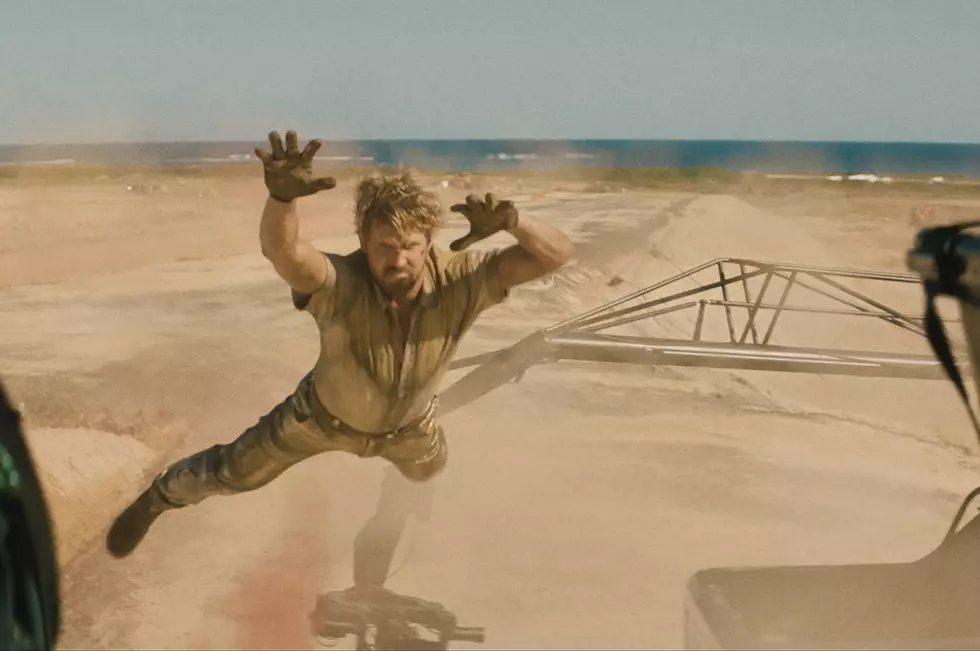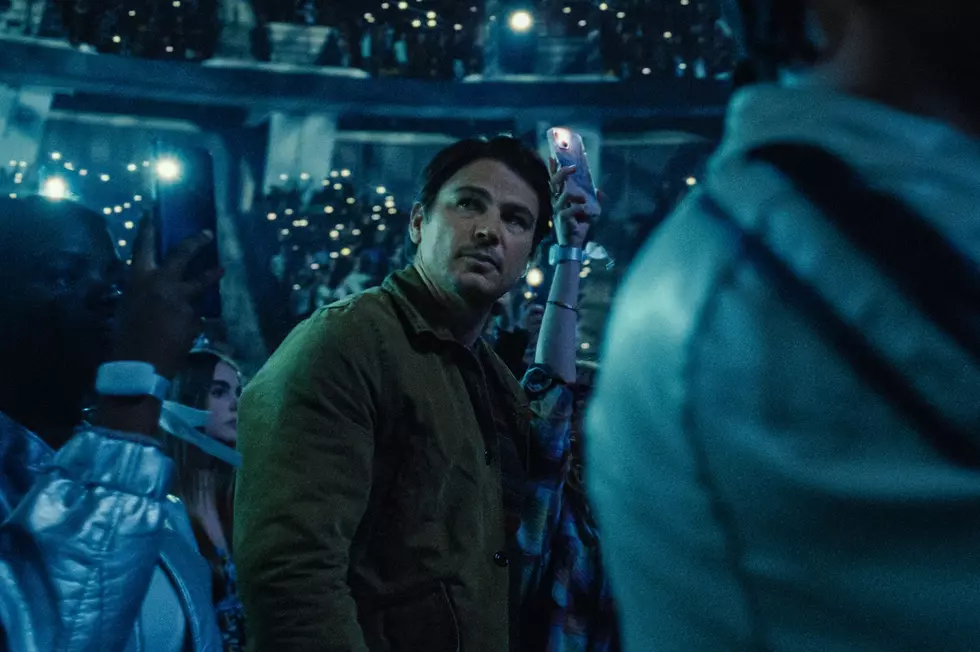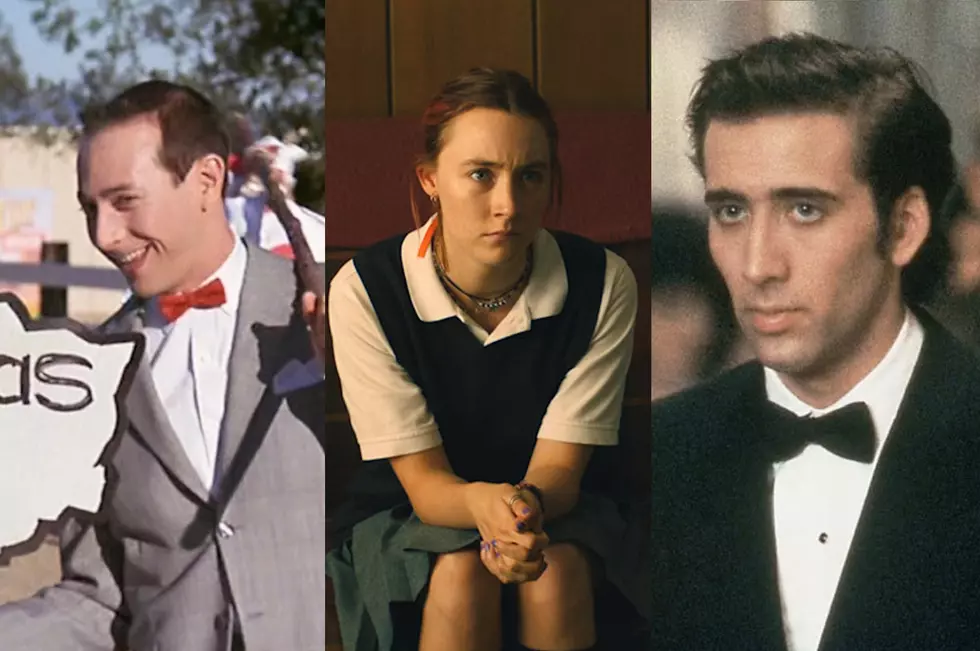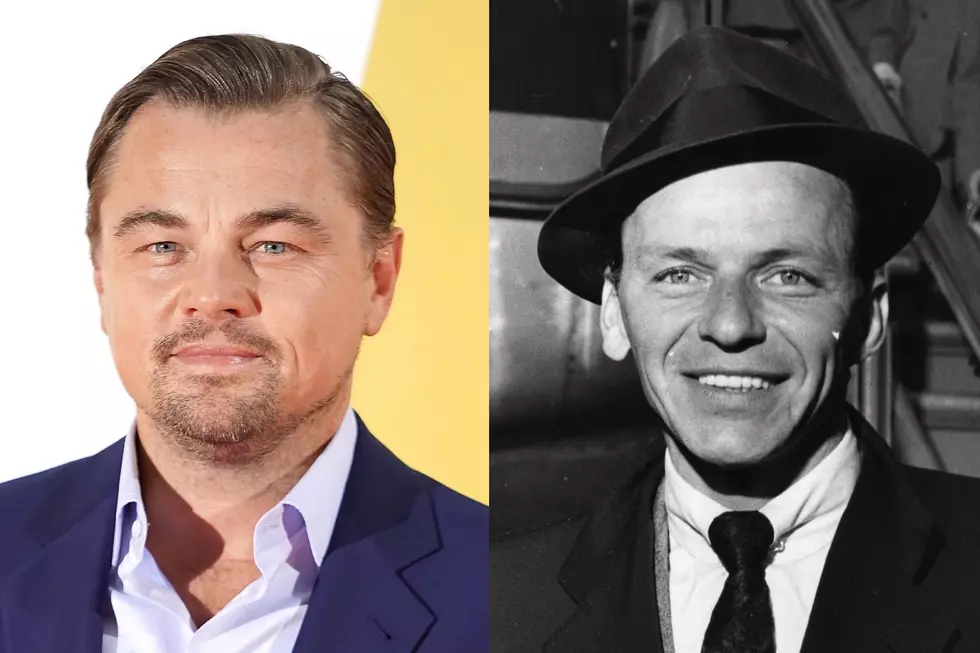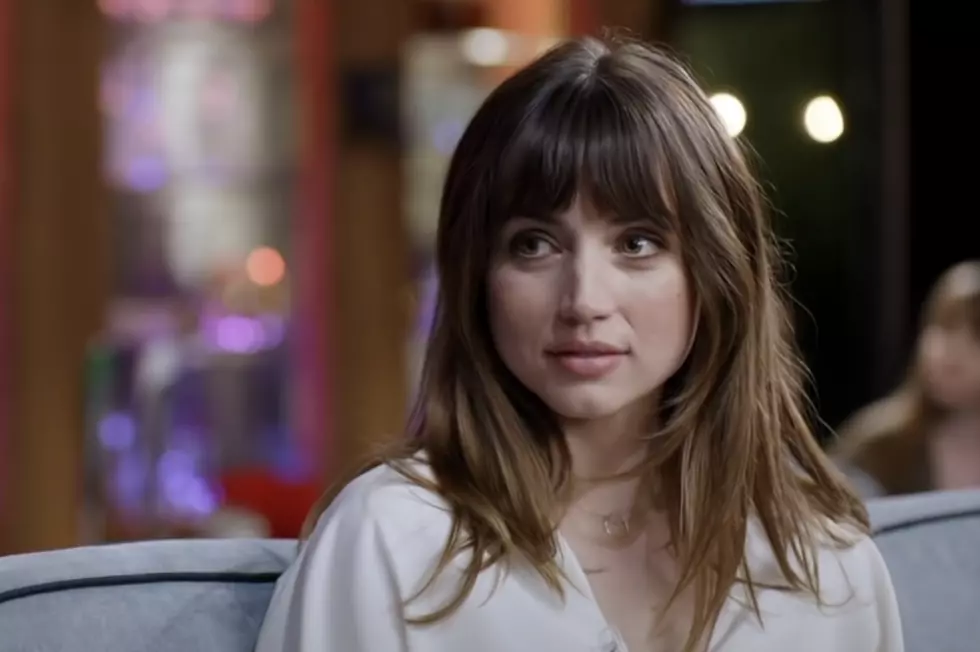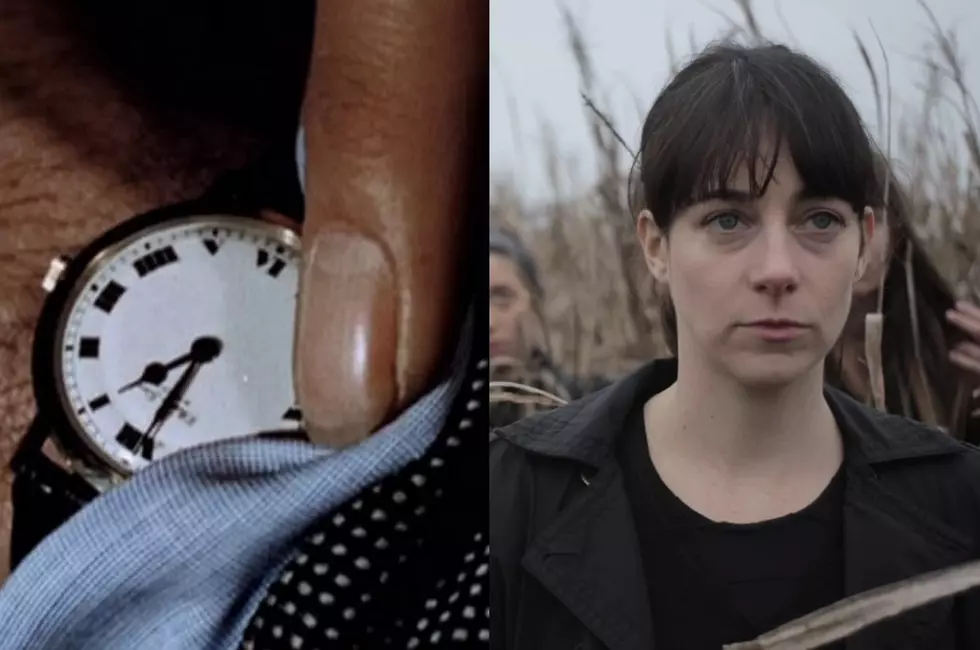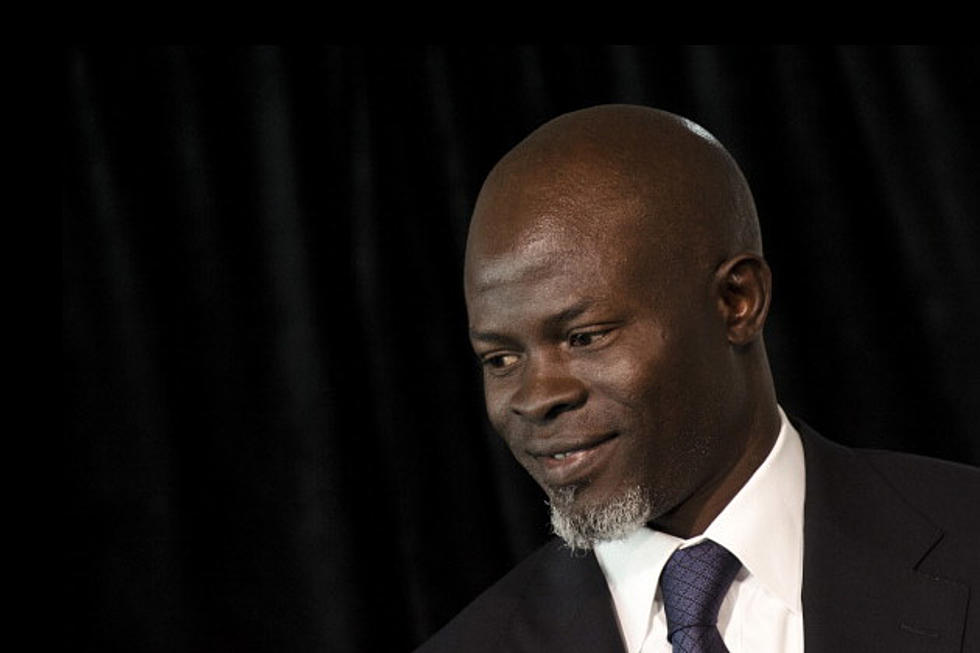
Djimon Hounsou Interview: Talking ‘Baggage Claim,’ Black Superheroes and ‘Guardians of the Galaxy’
'Baggage Claim' may mine familiar territory with its tale of a flight attendant sorting through her exes for the perfect man, but Djimon Hounsou is better than perfect in the film – he’s complicated. Playing a hugely successful hotelier who offers unexpected proposition to Montana (Paula Patton), the film’s heroine, Hounsou presents a sophisticated alternative to the African characters that too often appear on film. Possessed of a more cosmopolitan attitude about relationships, Hounsou’s character provides the film with one of its only alternatives to traditional relationships, and makes that option even more appealing than the one she’s chasing.
We sat down with Hounsou at the recent Los Angeles press day for 'Baggage Claim,' where the actor offers some remarkable insights about not just his character, but the perception of Africans in American and European entertainment. Putting his own professional endeavors in a cultural context, Hounsou talked about the work he does with each role, and revealed how taxing it can be to balance those larger responsibilities with his own creative process.
In other interviews for 'Baggage Claim,' you talked about wanting to present an alternate perspective on a character who might be perceived in a certain way. How much do you think about that when you initially pursue roles?
Hounsou: Well, I think about it a lot. Like another film that I did some years ago called 'Four Feathers' with Heath Ledger, [with] Shekhar Kapur, an Indian director, and 'Blood Diamond' also. It's been my notion, and also the fact that I'm of African origin but I know the outlook of [other cultures] – I was raised in Europe, in France, so I know the outlook of Africans of the world's view on Africa and Africans. So that's always left me a little bit perplexed – or wishing that Americans would travel more to Africa to really see what Africa is and who Africans are, their way of life. We're very evolved and engaging people. And, you know, today in this 21st century, I mean you have a lot of great scholars, great businessmen, novelists and so on and so forth from Africa and you’ve got quite a few billionaires. Single-handedly, Nigeria has more billionaires than the whole continent combined, and there's so much wealth in Africa. So why can't we be, since our land can provide so much for us, why can't we be at ease with the materialistic stuff.
Your character, in my opinion, has sort of the most sophisticated attitude about male/female relationships – maybe a more cosmopolitan attitude about the fact that marriage doesn't have to be sort of the defining dynamic between people. How important is something like that in defining a character, particularly because you do have sort of a finite amount of time to present another option for [the main character to] sort of consider?
Hounsou: I would not have made the film if not -- I certainly didn't want to be one of the men in a story that really is not offering any other diverse [options]. So that's why I sat down with David and I thought, here you had the chance to really show somebody who didn't get wealthy from playing ball. And you're showing us a man who's not wearing a loincloth who suddenly people are not thinking he's just like a jungle bunny. So all that was important for me. So I said I'm not going to play like a European so-and-so, I am African, and certainly for me to be the first African in Hollywood in this light, it's a lot. One needs to show a little bit how Africans are a diverse people and you have the indigenous people of Africa, but at the same time you also have like the more active society of Africa. So it was important for me to address that and hope that David Talbert could see that. And it's part of I guess my journey to show that I'm African, pure African, but also that can exist as well as we exist here. When you go to Africa, and some places in Africa, some people would be baffled that they're in Africa because sometimes it's even better than California architecture, you see what I mean? So I thought it was important for the west just to see that.
How difficult is it for you to find roles where you are able to just sort of think about the creative challenge, as opposed to maybe sort of having to take into consideration the perception of Africans?
Hounsou: A lot of times, if it deals with an African character who is African and has to deal with his livelihood, then I think a lot of times you find yourself challenged. Because again, a lot of guys that are telling the stories here are not Africans necessarily and they've never, some of them have never even been to Africa. So the notion of that it calls for a little bit of an education.
Well, I guess then, I admit I would probably never ask a white American actor if he felt a sense of responsibility, but how much responsibility I guess do you feel, and at what point do you go, I just want to make a creative decision that's not about me representing an entire group of people?
Hounsou: That's an interesting question because I felt like the responsibility seems so heavier when I started it, and certainly because I started with pictures that had so much meaning and were so instrumental socially. And so I was propelled into that type of storytelling. And then from Amistad to Blood Diamond and whatnot, that in itself sort of like gave me a certain heavy shoulders that I needed to be responsible about certain material, certain choices. And then I had a couple of years of transition that I had to really think about work as an actor, because again, you think about the responsibility, but you also have a responsibility to yourself and to your family to make somewhat a decent living so that you can support your lifestyle and your kids. And so that said, I [was] trying to grow with the work, [but] you can only follow the pace of the industry. I mean, it's what's available out there that you sort of have to pick. Because again, it's great you want to do great movies and you want to do meaningful films, but it's all about what's out there and what's available. So sometimes it's a bit challenging. These days, I'm going through a bit of a reconstruction if you will.
Have you thought about trying to create the representations that you want to see via writing, producing or directing? Or is acting your focus?
Hounsou: No, I am doing all that. There's just no one who can see what I'm doing yet, but eventually, once its all comes together as I visualize it, we'll have a conversation again. You'll see. There's not much to be said because again, at the end of the day everybody's creating something, everybody's mounting something and putting something together. So it's only worth the breath once it's together and then people can really see what you're [doing]. Talking about things to be talking about things, I don't really like that. I just kind of make it happen. But yeah, but I'm touching all those aspects you indicate.
What do you think about the values of this movie? It's a movie where the female character’s goal is to be married, which is kind of maybe a necessary convention of romantic comedies, and at the same time, we kind of reached a point, certainly in American culture, where like there is not necessarily as high of a premium placed on that as it used to be.
Hounsou: It's an elaborate question. I'm not quite sure - come again. I'm not so sure if I understand what you mean.
Do you have concerns about being in a film that might have values that are say not as…
Hounsou: Not as profound as some other films that I've made?
Sure, yeah.
Hounsou: No, I don't necessarily have any concerns about that because I think anybody needs a bit of laugh here and there. And also it's nice to be in a lighthearted film. I mean shoot, this was probably one of the easiest things in and out. And I didn't really have to think too much about the character, I mean I worked on the back story of the character but I didn't really have to think too much on the character in the sense that he was not playing a dramatic moment or scene. I feel like on this film I'm more like I'm dressing the set, more than anything. It's kind of like one of those light, playful things. There's nothing else to it. It's nice. That in of itself is nice for people to see, because as you can see, in most of my films I'm pretty intense as far as the work is concerned. So it's kind of nice to be in films that don't require that much intensity. So it takes its toll on you, you know. Because as the conductor of those characters and all that, eventually some of it can create corrosion.
Is there anything that you do in particular to define the center of a character? Whether it's a specific technique, is there something in particular that you do that makes it easy to play this guy?
Hounsou: Yes. I guess in regards to a picture like this, there was less homework, there was an easiness that's coming to set and just kind of like not really be thinking about it, you know, until you hear action. So it's a walk-through, if you will. And sometimes it's nice to have that a little bit, instead of the hard emotional stuff, [because] sometimes that's draining. It's exhausting sometimes. And sometimes some of us don't necessarily know how draining that is, especially early on. You think, oh great, I'll play this really heavy character and it's fun. But over time and with age and awareness and understanding and then you realize oh, playing this character kind of like - I think was it Jack Nicholson who made a point about Heath Ledger playing [The Joker] - yeah, I think it can be painful. That's why there’s the need to always sort of cleanse yourself once you finished some of those heavy stories, and do not take that home. You can't take that home to your kids, your wife, that's not healthy.
Well, it seems like you'd be eager to take it home if you were on something like 'Guardians of the Galaxy' then, by comparison.
Hounsou: Yeah. But that's fun. Even though I'm playing a very hard character, that's fun. You can go home lighthearted and enjoy your family without this heavy [weight hanging over you]. I tell you, it's only in the later years that I realize that there's always a thing between what we see today and you can see and touch, it all came from a preconceived idea and somebody conceptualized it. Somebody dreamed about f---ing planes and flying and just like I can reach of the other continent quickly. Looking at birds and thinking oh, so that's why we are flying now. So everything started from a concept. So now a concept mixed with feelings, that is the most damaging thing. So when we work, we have to conceptualize it, you know, the character, and then bring feelings to it. That's a lot of damage you're creating your own soul, your own self. And so it's dramatic roles are necessarily, you know, over the years they're not necessarily easy and fun to tell the story and to tell a great story. But the same time, it creates quite a bit of conflict within yourself.
More From ScreenCrush

